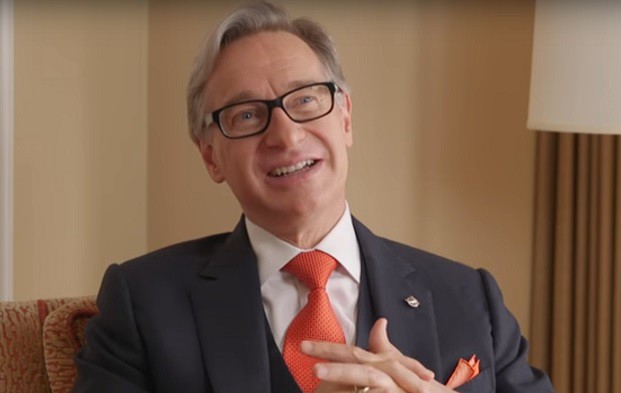Paul Feig is known for directing female-driven films, and that’s a reputation he’s just fine with. Being associated with championing women in film is not a bad thing — at least not in his eyes. Feig spoke at an event at USC last week, and took the opportunity to share some unsolicited advice he’s received.
The “Ghostbusters” director has been given silly, sexist feedback from studio execs in response to his women-centric films, Deadline reports. Feig prefaced a story by saying “I will tell you this gross thing.” (A fitting beginning for many Hollywood stories.) He explained, “I’d had so many producers and stuff pull me aside and go like, ‘So, you don’t want to get pigeonholed into this. You’re going to be, like, this women’s director.’” Thankfully, Feig didn’t heed the recommendation — he balked at it. “Like, what the fuck does that mean? Do you pull Scorsese aside and say, ‘Mmm…you’re working with a lot of men…,’” Feig asked, receiving applause and laughter from the audience.
Feig consistently draws attention to the bullshit double standards that plague the film industry — a topic he also addressed in relation to his 2011 critical and commercial hit “Bridesmaids.” “When we were making ‘Bridesmaids,’ the whole industry was on hold for women,” he recalled. “I had a lot of female writer friends who were going out and trying to sell movies in the same world, with female leads, and all the executives said, ‘Well, we’ve gotta wait and see how ‘Bridesmaids’ does,’ which is completely fucked.”
As outlandish as it sounds, the future of female-led films largely hinged on the success of that one particular film. Movies about men are allowed to flop without calling into question whether or not films centered around men should continue to be greenlit. Films with female protagonists don’t have that luxury. When a female-led film draws disappointing numbers, it’s attributed to the gender of the main character. Feig remembered feeling panic-stricken at this prospect. He questioned, “Oh my god, I’m literally ground zero for killing movies for women? This is terrible…[‘Bridesmaids’ was] tracking like we were going to bomb, too,” he explained. “I had been told: If we don’t get $20 million opening weekend, it’s a failure.”
Thankfully, the ensemble comedy didn’t bomb: “Bridesmaids” grossed over $288 million worldwide on a budget of $32.5 million. But “Bridesmaids’” amazing numbers didn’t destroy the myth that female-led films aren’t profitable, nor did Feig’s hugely successful follow-up films “The Heat” and “Spy.” And long before “Ghostbusters” hit theaters — or even started filming — the project was met with unfair expectations and, of course, misogyny.
Feig has become an essential voice in the conversation about women in film, both on-screen and behind the scenes. “I don’t think [the situation in Hollywood] is getting better,” he has said. “It’s not as terrible as it was, but look at the number of lady directors.” Feig elaborated, “I have guilt that I’m a man doing these movies. Women should be doing them, too! The studios aren’t giving them the opportunity for whatever reason, and the roles still aren’t there for women like they should be.” He’s also announced that he’ll add an equity clause to his future film contracts that will require gender-balanced casting for minor roles. He explained, “I think we need to set these things in stone so it forces everybody to think that way.”






